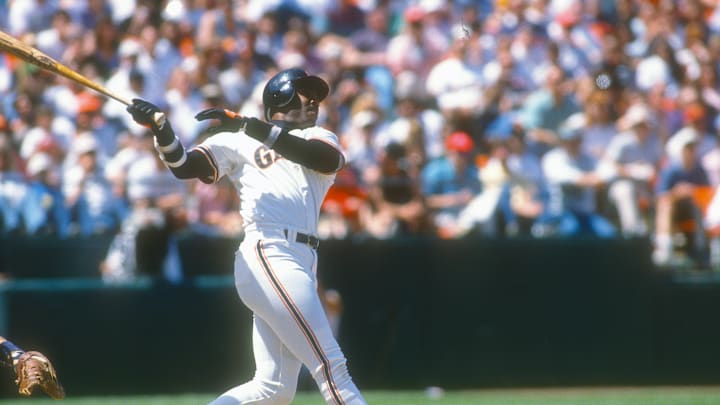In 2004, three years after his 73-home run campaign, and at the age of 39, Barry Bonds produced one of the most amazing seasons ever. This is not a commentary on steroids or that era of baseball, but an appreciation of one of the greatest players ever to take the field.
A quick reminder is in order about the player Bonds was in the 1980s and 1990s. Over the first 14 years of his career, playing for the Pittsburgh Pirates, then the San Francisco Giants, his slash line was already spectacular — .288/.410/.559/.968. He had 445 home runs and 460 stolen bases. He knocked in 1,299 runs and scored 1,455. He had 423 doubles and 1,112 walks. He was an eight-time All-Star, an eight-time Gold Glove winner, and a seven-time Silver Slugger winner. He won three MVP awards and had four other top-five finishes in the MVP voting.
Barry Bonds was a first ballot Hall of Famer, even if he had not played a single game after 1999. But he did.
What makes 2004 such a special year for Barry Bonds
Where to start? That season, he put up the fourth-best slugging percentage (.812) ever achieved in Major League Baseball. Only his mark from 2001 and two of Babe Ruth's were higher.
His on-base percentage was .609, demolishing the record he set in 2002 when he topped Ted Williams' 61-year-old record. To make that number crystal clear, it means that for every 10 times he stepped to the plate, he reached base more than six times, on average. That seems unfathomable now.
An argument could be made for several of his seasons to be his best. 1993 stands out, not just because of the numbers themselves, but that they were achieved maybe more naturally. Some could argue that 2001, with the 73 homers was his best, and both 2002 and 2003 were unbelievable, too.
There is one set of stats though, to separate 2004. In the season, he played in 147 games and had 617 plate appearances, but only 373 at-bats. He walked 232 times, 120 of which were intentional. Imagine that — 120 intentional walks in one season, including at least once with the base loaded. Since 2004, less than two dozen players have even walked 120 in a season, and he was walked 120 times on purpose. Bonds is the only player to walk more than 170 times in a season, and he's done it four times.
In those 373 at-bats, Bonds had 75 extra-base hits, including 45 home runs. His slash line defies logic — .362/.609/.812/1.422. He also struck just 41 times. In a nutshell, he had four more home runs and 191 more walks than he did strikeouts.
For his career, Bonds led the league in walks 12 times. For his career, he took a free pass 2,558 times, more than a thousand more times than he struck out. He was intentionally walked 688 times. To put that in perspective, only 11 active players have more total walks in their careers than Bonds' 688 intentional walks.
At this point, there is little point in withholding Bonds, Roger Clemens, Mark McGwire, Sammy Sosa, Manny Ramirez, Alex Rodriquez, and even Pete Rose from the Hall of Fame for past transgressions. When considering the list of inductees over the past several years, it seems hypocritical that these players are still not recognized for their excellence over the breadth of their great careers.
Bonds had not one, but two of the greatest four-year stretches in baseball history, and his 2004 season stands as his best. It is hard to believe it's already 20 years in the past, but it is certainly not forgotten.
